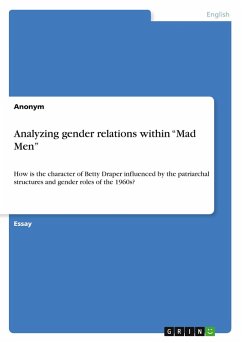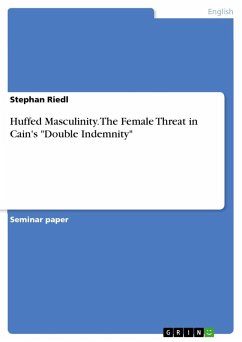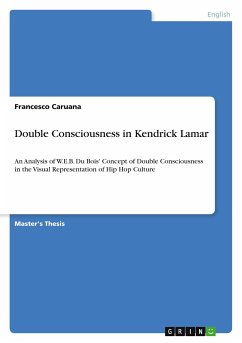Seminar paper from the year 2012 in the subject American Studies - Miscellaneous, grade: 1,3, University of Mannheim, course: Film Noir, language: English, abstract: In the course of my paper, I explore how Billy Wilder's film "Double Indemnity" (1944) depicts patriarchal gender relations and why Phyllis Dietrichson's character is socially relevant and a testament to those patriarchal structures of her time. I will start by establishing the concept of Patriarchy in chapter 2. The chapter is important to clarify basic ideas that emerged from gender studies and lay a foundation. Chapter 3 introduces the femme fatale as a female archetype in Film noir. Here, I will point out what characterizes the showpiece-femme fatale, with reference to the socio-cultural background. The following Chapter is the main focus of my paper: The analysis of Phyllis Dietrichson in "Double Indemnity" (1944). After a short introduction to her character, I will examine Phyllis in relation to men. This is pivotal for the success of this paper. How is she affected by patriarchal gender relations and why is her womanhood threatening to men? And since we are dealing with a filmy analysis, how is this cinematically staged? Chapter 5 will concentrate on the relationship between Walter Neff and Barton Keyes. I decided to add this chapter because their male-male bond reinforces patriarchal ideas and is a perfect contrast to the relationships of Phyllis with Walter and her husband. By tradition, the conclusion is the finishing part of my paper.
Hinweis: Dieser Artikel kann nur an eine deutsche Lieferadresse ausgeliefert werden.
Hinweis: Dieser Artikel kann nur an eine deutsche Lieferadresse ausgeliefert werden.








